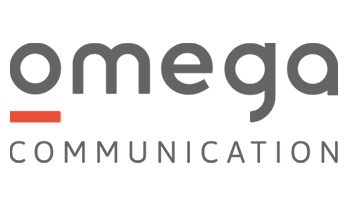Employee advocacy – a human to human strategy in communications
Nowadays, savvy employers are implementing employee advocacy programs on social media that respond both to the needs of companies, as well as those related to building the personal brands of employees. Based on the example of LinkedIn, the communications platform most frequently used for this purpose, what steps should be taken to implement an effective employee advocacy program that will help to develop the business?
In the era of modern communications channels and ubiquitous information access, the split into business and individual marketing does not make sense anymore, as the same tools, channels or even strategies are used in both cases. The rise of social media has blurred other boundaries as well. Brands competing for online attention have been forced to have a more human face, in the literal meaning of the word. It has long been known that people are more strongly influenced by activity on personal profiles than by the communications conducted on company websites. Based on statistics, the content published on personal profiles has up to eight times greater reach than the same publication on the company page, which should not be so surprising as employees have 10 times larger social networks than company websites[i]. This clearly demonstrates that we prefer to read about the experiences of individuals and specific real-life examples, rather than view messages perfectly prepared by marketing departments. People trust people (their peers, colleagues at work, relatives) much more than brands that have no emotions or experiences, just logos supporting them.
Why LinkedIn and employee advocacy?
LinkedIn is increasingly becoming a place where one is looking for business partners, opinions and information on companies. However, LinkedIn is not only a social medium. As a matter of fact, its social function has only recently made itself known. Until recently, this portal had been regarded in Poland as a place to search for jobs and employees. Meanwhile, LinkedIn focuses on the individual and prioritizes areas related to building a personal brand. More so than company profiles. It is the user, being an expert in a specific field, who is able to reach many people with the given message and encourage other participants to interact.
On the other hand, companies and brands need ambassadors who will support them in building credibility and recognition on social networks, in accomplishing business goals, as well as in promoting the employer’s brand. Employees are the most obvious ambassadors of any company. Building trust in a company or brand by its employees on social networks is one of the shortest definitions of employee advocacy. Why are employees the core of the employer’s brand communications? They know their own company best. They also have the knowledge of the industry, trends, and are true experts on the topics they are dealing with on a daily basis as well.
Bilateral benefits of implementing employee advocacy
The workforce and their contact networks are therefore one of the best communications channels to be used to build trust in the company. By sharing content on their social networks employees are helping to expand the reach and trust in the company and its products on the market. Therefore, the benefits for the company or brand are obvious. The voice of employees on social media leads to a better perception of the company, increases referrals and recommendations, can impact the interest of new potential customers, generate orders and attract new employees. Also for employees, it is an opportunity to build and promote their personal brand, share expert knowledge, expand their reach, establish new business relationships and extend the network of business contacts.
Employee advocacy is not for everyone
However, not every “employee advocacy” programs stand a chance of becoming successful. Before implementing such a program, a company should analyze whether it is ready for it, whether it has in place solid foundations for its launch. Employees should not only share the same values as the company or brand, but also feel that their basic needs are met at their workplace. An adequate organizational culture based on trust and understanding is important. On the other hand, the content they share should be based on real commitment, identification with the company’s culture and communications. However, it often happens that the implementation program fails because employees feel under pressure. They have no support whatsoever, while there is a strong belief within the company that social media are supposed to generate sales. It is worth realizing that even the best employee advocacy program will not work if employees do not share a true conviction regarding what they are doing. So how to launch and run effective employee advocacy activities on LinkedIn? Here are some tips.
Good employee advocacy practices on LinkedIn
Define your goals
Employee advocacy, like any program, requires preparing a good action plan, including defining the goals to be accomplished. Do you want to raise brand awareness? Generate a higher turnover? Support recruitment activities? Or maybe you will have several goals? This should be clearly stated from the outset. The goals may vary for different departments and for different employees. It is important that they are understandable for all those concerned, measurable, achievable and timed.
Organize an information meeting with the workforce
During the introductory meeting with the workforce, explain why it is important and necessary to implement the program at your company. Demonstrate the personal benefits, the values of the program. On the one hand, it will be easier to achieve professional goals – the salesperson is no longer anonymous, the content available on Linkedin builds his/her position as an expert and consultant in the eyes of current and potential customers. The incentives may also include additional elements, such as training on building an expert’s brand online, but also, for example, additional benefits for the most active employees. It is worth linking the program with media activities, taking advantage of the greater recognition and attractiveness of selected experts.
Choose the participants of the program well, define the roles
Remember that there is no need to force all employees to take part in the employee advocacy program. Select a project leader and people who will commit to cooperating in developing relevant content on a regular basis. Encourage regular activity. Employees are much more willing to publish and share the content they are involved in creating. In addition, they are specialists in their fields and valuable content is the basis of any activity on social media. Therefore, make sure they have an impact on the content they will be promoting on their LinkedIn channels.
Provide support for the activities
If you want commitment, you need to provide adequate support for the participants. Help them set up profiles, develop contact networks. Explain what the goal of the activities is and what the expectations are. Make sure that the activities undertaken are clear to everyone. If required, organize adequate training sessions, regular discussions about new ideas, but also, in case of objections or doubts arising during the program’s implementation, be open to feedback. Offer advice on how to be successful. Also, provide support in the form of helping in the preparation or editing of the texts.
Measure performance results and provide feedback
Performance results can be measured with the use of dedicated employee advocacy tools that are plentiful in the marketplace. Such tools are also used for easy content management, checking reach, generating reports. By tracking the reach, engagement, but also conversions or the impact of specific employees on the business goals accomplished, you can draw conclusions from the results achieved and appreciate the relevant results and actions, but also modify your marketing plans. To move forward you need to know where you started.
The employee advocacy program is an investment in development and long term activities instead of temporary measures. Transparency and the introduction of an effective program may, in the long run, affect many areas of the company’s operations, but this will only happen if it turns into an organizational culture, and not just another form of raising sales figures or an opportunity to recruit new employees.
By Dorota Sapija, Omega Communication
[i] source: https://business.linkedin.com/content/dam/me/business/en-us/elevate/Resources/pdf/official-guide-to-employee-advocacy-ebook.pdf











